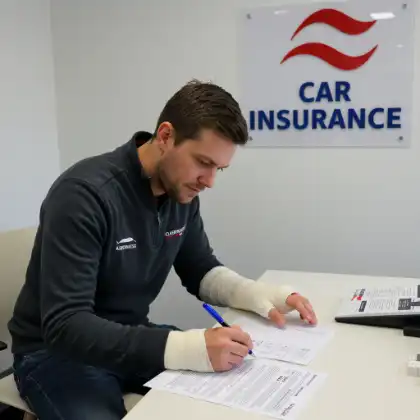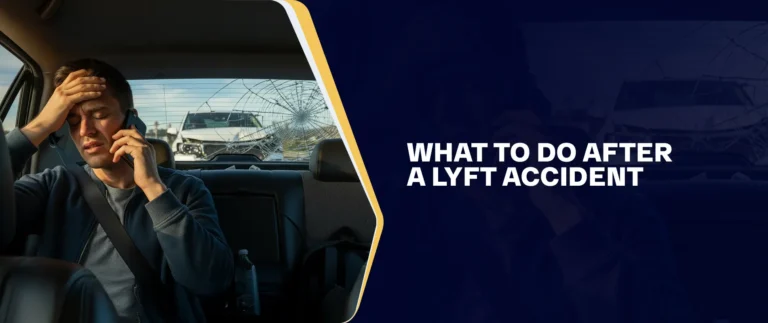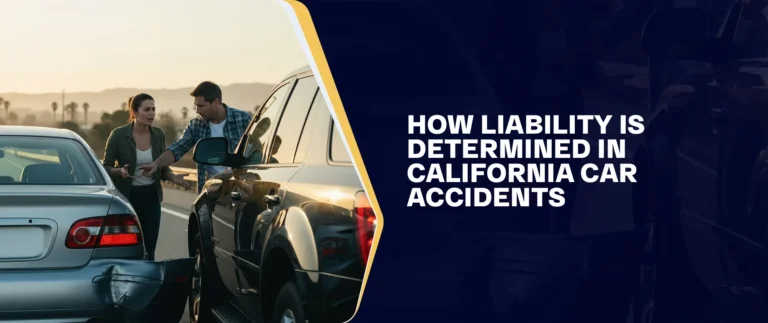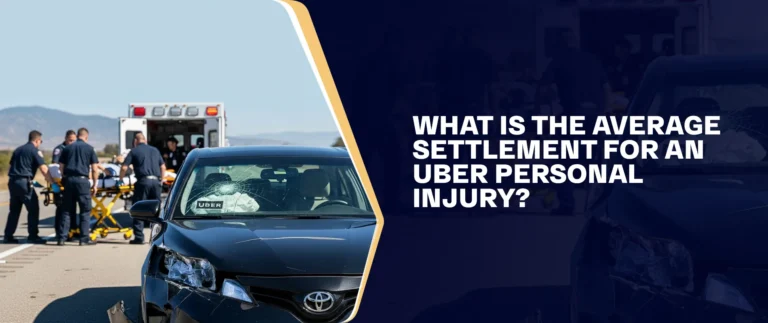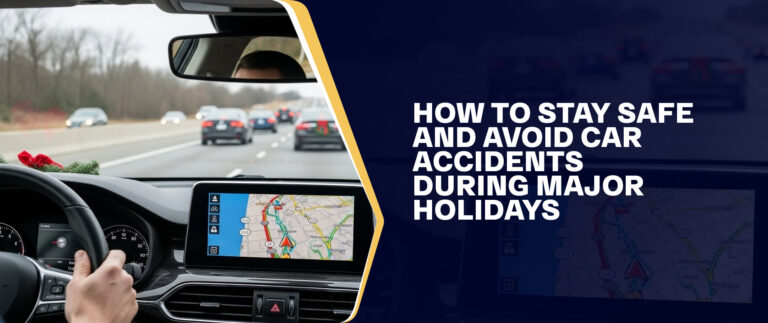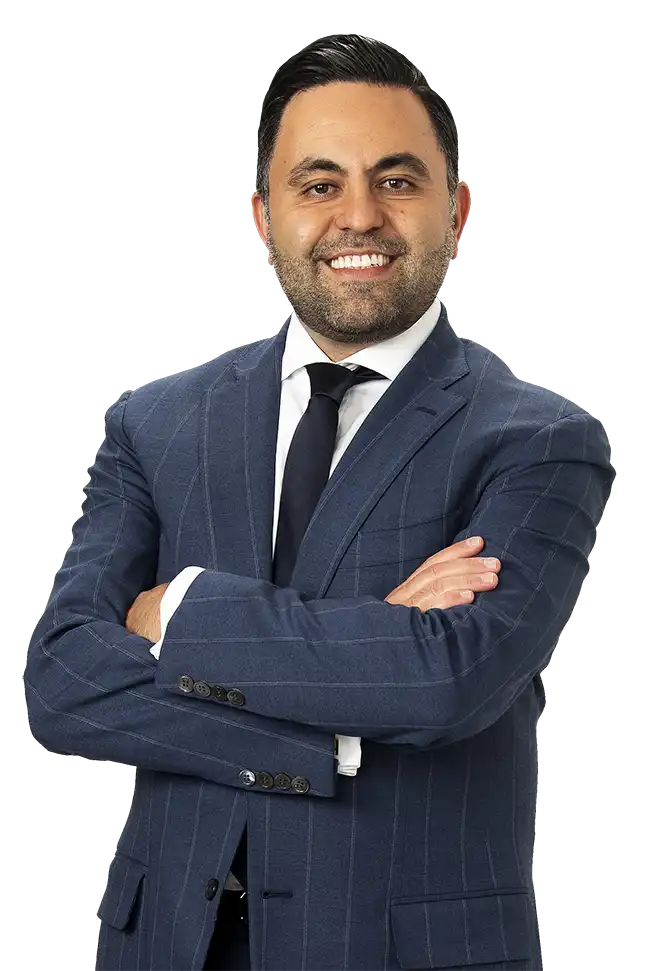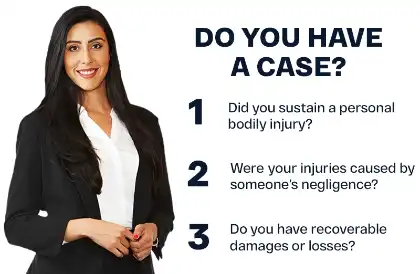TL;DR: Health insurance can pay for ER visits, surgery, and rehab after a car crash, but it kicks in only after MedPay or the at-fault driver’s auto coverage and may later demand reimbursement, often leaving you with deductibles, copays, or out-of-network bills. A lawyer may help you better understand your options.
Table of Contents
Health insurance can cover medical treatment after a car accident, but it usually pays only after auto insurance or the at-fault driver’s policy is used. While waiting for those claims to settle, your health plan may help cover care, but you might still owe deductibles or out-of-network fees. Some insurers may also seek reimbursement from the at-fault party’s coverage.
The exact benefits depend on your plan’s limits, exclusions, and provider network. If you’re unsure how your coverage applies, our car accident lawyers can explain your options and handle negotiations with insurers. Contact us at (888) 488-1391 for a free initial consultation.
Health insurance may help pay for:
- Emergency Care — Ambulance rides, urgent care visits, and ER treatment.
- Diagnostic Tests — X-rays, CT scans, and other imaging to assess injuries.
- Hospital Services — Inpatient stays, monitoring, and intensive care.
- Surgical Treatment — Major or outpatient surgery, including anesthesia.
- Recovery Support — Follow-up visits, physical therapy, medications, and medical supplies.
How Health Insurance Works After A Car Accident
Health insurance typically covers medical care for car accident injuries, no matter who caused the crash. However, it usually acts as secondary coverage and only kicks in after your auto insurance (like MedPay) or the at-fault driver’s liability insurance is used.
Here is what health insurance typically covers:
- Emergency Care — Your insurance policy might cover emergency services like ambulance transportation, ER visits, hospital stays, surgeries, and any urgent treatment you might need.
- Rehabilitation — Your health insurance might cover physical rehabilitation, chiropractic care, or occupational therapy, depending on your needs after a car crash. However, some insurance policies limit the number of sessions you can have.
- Medications — Your health plan might cover prescription medications for pain relief, infection prevention, or long-term recovery. Some of these medications can be expensive and may require prior approval from your insurance. If not approved, you may need to pay higher out-of-pocket costs.
Every policy is different. Some states set specific rules for how insurers handle medical bills, including coverage limits and reimbursement rights. Review your policy to understand your coverage, limits, and exclusions.
Speak with car accident attorneys if you’re unsure about coverage or who is responsible for paying. They know how to work with insurance companies. Lawyers can help you pursue the resources needed for your medical care.
Who Pays First: Auto Insurance Or Health Insurance?
After a car accident, medical bills can pile up fast, and it’s not always obvious which insurance policy applies. Should your health insurance cover your treatment, or does your auto insurance pay first? Here’s a breakdown of how it works:
- Primary Coverage — Auto insurance usually pays first. If you have MedPay, it covers your medical costs regardless of fault. The at-fault driver’s liability insurance pays next, up to its policy limits.
- Secondary Coverage — Once the at-fault driver’s insurance is exhausted, your health insurance takes over. It pays any leftover medical bills. However, you may still owe out-of-pocket costs, like deductibles and copayments.
In California, MedPay is an optional first-party coverage you can choose to include in your auto insurance policy. It pays for medical bills regardless of fault and may also provide coverage for non-traditional providers like chiropractors. Drivers must have the following minimum liability insurance:
- $30,000 for injury per death to one person.
- $60,000 for injury per death to multiple people.
- $15,000 for property damage.
If you have any questions or concerns with your claim, consult experienced lawyers for car accidents. They can guide you through the process and negotiate with insurance companies on your behalf.
Common Out-Of-Pocket Costs You May Still Owe
Even with health and auto insurance, you may still have out-of-pocket expenses. These costs may arise from policy limits, exclusions, or specific treatment requirements. Here are some common expenses to consider:
- Deductibles, Copays, & Coinsurance — You’ll likely pay some costs upfront before insurance takes over. With coinsurance, you’ll also cover a portion of the total bill.
- Policy Limits & Exclusions — Insurance policies often cap how much they’ll cover. If your treatment exceeds those limits, you’ll pay the difference. Some plans also exclude specific types of care.
- Out-of-Network Providers — If you visit a doctor or facility outside the health insurance network, you could face higher costs and reduced coverage.
- Emergency Exceptions Vs. Routine Care Limitations — Most plans cover emergency services. However, your policy may limit coverage for follow-up visits, physical therapy, or other routine care, leaving you to pay more out of pocket.
- Pre-Existing Conditions — If the accident worsens a pre-existing condition, your insurer may refuse to cover the related treatment. Check your policy to understand how it defines and handles these issues.
If you’re unsure about your coverage, ask your provider to clarify. Car accident attorneys can review your policy, negotiate with insurers, and help you pursue compensation.
Subrogation In Insurance: What You Need To Know
Subrogation means your health insurer may seek reimbursement from the at-fault party’s insurance for bills they covered. Both private and government insurers (such as Medicare and Medicaid) can claim part of any settlement or award you receive, including the deductible you paid.
However, subrogation can hurt your claim if not managed correctly. If you do not negotiate properly, your health insurer’s claim may significantly reduce your net settlement. Meanwhile, your car insurance might not pay enough for your injuries or damages.
Are you wondering, “Do I need a personal injury lawyer?” The answer depends on the specifics of your situation, particularly when subrogation is involved. A lawyer for car accident cases can review your situation, explain your options, and help you respond to insurance demands.
How Health Insurance Helps If Your Auto Claim Is Delayed
When your auto insurance claim gets delayed after a car accident, health insurance can step in to cover necessary medical care so you don’t have to postpone treatment. Using your health plan while you wait for a settlement can protect both your health and your financial stability.
Here’s how it helps:
- Covers Urgent Medical Needs — Health insurance can pay for ER visits, hospital stays, and follow-up care while your auto claim is still pending.
- Prevents Care Delays — Getting treated promptly supports your recovery and can help strengthen your injury claim.
- Fills Gaps in Coverage — If your auto policy has low limits on MedPay, your medical insurance may cover the remaining costs.
Common reasons for auto insurance payout delays include:
- Liability Dispute — The at-fault driver’s insurer may investigate your circumstances closely to assess the extent of their responsibility. Depending on their findings, they may raise disputes, which can prolong the claims process.
- Quick Settlement Offers — They might offer initial settlements based on their evaluation, hoping you’ll accept and avoid the costly and lengthy litigation process. However, their initial offer may fail to account for the full extent of your losses, especially if you’re still healing.
- Protecting Their Interests — The insurer might take some time to raise defenses, hoping to protect its bottom line.
You can rely on your health insurance to cover your medical expenses during this time. Nevertheless, you’ll still have to pay deductibles, copays, and higher out-of-pocket costs while waiting for the auto insurer to reach a decision about your claim.
If you are in this situation, you may speak to a car accident attorney. They can guide you through the process and help you understand your options when dealing with insurers.
How To File A Health Insurance Claim After A Car Accident
If you’re injured in a car crash and plan to use your medical payments coverage (MedPay), notify your insurer immediately. Here’s how the process generally works:
- Notification — Let your auto insurer know you sustained injuries in an accident.
- Verification — They may request documentation to confirm the injury’s connection to the crash. This could include:
- Police collision report
- A statement from you
- Medical records or a physician’s summary.
Always keep thorough records of your treatment and expenses to support your claim.
- Submission — You or your medical provider will then submit itemized bills for payment.
- Reimbursement — Once verified, payments are made directly to you or your doctor, depending on your preference.
What If You Don’t Have Health Insurance After A Crash?
Even if you don’t have health insurance, there are still ways to get medical care and handle your expenses after a car accident. Here are some options:
- Car Insurance Options:
- MedPay or PIP — Review your car insurance policy for Medical Payments or Personal Injury Protection coverage, as these help cover medical expenses, regardless of who caused the accident.
- Uninsured/Underinsured Motorist Coverage — This policy can assist with paying for your hospital bills if the at-fault driver lacks sufficient insurance.
- Medical Liens:
- Some doctors and hospitals may agree to treat you and wait for payment until your case is resolved. They’ll collect payment from your potential settlement or award. Although it enables you to obtain care without having to pay right away, the entire cost is still your responsibility. You might still have to find another way to pay for the medical bills, regardless of your case’s outcome.
- State Programs:
- Medicaid — If your income is low and you have serious injuries, you may qualify for emergency Medicaid, which can cover your medical expenses.
- State-Funded Health Care — Some states offer programs for uninsured individuals to get necessary medical services.
- Legal Consideration:
- You can file a personal injury claim or lawsuit against the at-fault driver to seek compensation for medical bills and other losses. A car accident lawyer can review your situation and provide you with your options. They can also help with:
- Navigating payment plans or liens with healthcare providers.
- Seeking compensation from the at-fault party if needed.
- You can file a personal injury claim or lawsuit against the at-fault driver to seek compensation for medical bills and other losses. A car accident lawyer can review your situation and provide you with your options. They can also help with:
How A Car Accident Lawyer Can Help
Handling medical bills and insurance claims after a crash can be tough. Even with health insurance, you may hit coverage limits, experience delays, or incur out-of-pocket costs. Complications like these are situations where a car accident attorney can provide valuable assistance. Here’s how they can help you:
- Explain how your health and auto insurance work after a crash.
- Coordinate claims across different insurance companies.
- Contest claims that are denied or delayed.
- Handle subrogation if your health insurer wants repayment.
- Break down what your policy covers and what you may still owe.
- Navigate insurance processes and understand your coverage options.
- Evaluate all your damages, including long-term care and lost income.
Health insurance doesn’t cover every cost after a car crash. If you’re unsure about a bill or your coverage, fill out our “Do I Have A Case?” form for a free case review. Our lawyers handling car accident claims can help assess your situation and guide you on the next steps.
FAQs About Health Insurance And Car Accidents
Our car accident attorneys help you navigate your rights and options. Below are answers to some of the most common questions about how coverage works after a collision. If you have questions about your claim, you can contact us for a free initial consultation.
Does Health Insurance Cover Car Accident Injuries?
Health insurance can cover medical expenses after a car accident, but it usually acts as secondary coverage. Here’s how it works:
- Auto Insurance — MedPay or Personal Injury Protection (PIP) from your vehicle policy generally takes care of medical bills, regardless of fault.
- Health Insurance — After your auto coverage is exhausted, your health plan may step in to cover remaining costs, though out-of-pocket expenses like deductibles or copayments may still apply.
- Out-of-Network Care — If you see providers outside your network, you may face higher costs.
If the accident wasn’t your fault, your health insurer might seek reimbursement from the at-fault driver’s insurance through a process called subrogation. Review your policy to understand your coverage, and consult an attorney for car accidents if you need guidance in handling your claims.
How Much Does A Car Accident Lawyer Cost?
The cost of hiring legal representation varies, depending on the complexity of your case. Some law firms charge hourly rates, while others have a flat fee for certain services. Many lawyers handling car accident claims work on a contingency fee basis. This payment structure means you don’t pay any attorney’s fees upfront. The lawyer only receives payment if they recover compensation for you through a settlement or court award. In certain cases, even if the outcome is not in your favor, you may still be required to pay certain costs related to your case.
Ask your car accident attorney to explain the fee structure and any potential costs so you know what to expect before moving forward.
Are Some Health Insurance Carriers Better When You Have An Accident?
Health insurance companies do not all treat car accident claims the same way. Some may process claims faster, have better customer service, or provide more flexible options. Here are some examples of healthcare plans and network types you can find in the Health Insurance Marketplace:
- Health Maintenance Organization (HMO)
- Preferred Provider Organization (PPO)
- Point of Service (POS)
- Exclusive Provider Organization (EPO)
Some companies provide catastrophic health plans for those under 30 or struggling financially. These plans often cost less each month but have higher deductibles. Check how your health insurer handles car accident claims to avoid surprises in the future.
What If The At-Fault Driver Doesn’t Have Enough Insurance To Cover My Medical Bills?
If the driver who hit you doesn’t carry enough coverage, your Underinsured Motorist (UIM) coverage may help pay what their policy can’t. For example, if the at-fault driver only has liability coverage, it might not pay all your medical bills. In this case, UIM can cover the extra costs and any other losses you have.
Having underinsured motorist insurance is important. You can upgrade your policy for extra protection if you don’t have this coverage.
Our car accident attorneys can help you explore your legal options if you suffered injuries in a crash involving an underinsured driver.
Can I Choose My Medical Providers After A Car Accident?
Yes, you can usually choose your medical providers after a car accident. If you’re using health insurance, check your plan’s list of in-network providers. This can help reduce your out-of-pocket costs.
If you’re using your auto insurance’s Medical Payments (MedPay) coverage, you may still have flexibility in choosing providers. However, some insurers may require pre-approval or limit reimbursement based on the type of care. Review your policy carefully to understand any restrictions. If you’re not sure, contact our car accident attorneys. We can help you understand your options for getting the medical help you need.
How Long Do I Have To File A Case In California?
Understanding the time limits for filing various insurance claims or lawsuits in California is essential to protecting your right to compensation. Different rules apply depending on the nature of your claim, be it a health insurance submission, a car insurance claim, or a personal injury lawsuit.
Health Insurance Claim Deadlines In California
In California, the typical deadline for submitting a health insurance claim is within one year of receiving the medical service. However, the actual time limit can vary based on your policy terms and whether the provider is in-network or out-of-network:
- Contracted providers (in-network) must be allowed at least 90 days to submit claims.
- Noncontracted providers (out-of-network) are given a minimum of 180 days.
Failing to submit claims within these periods could result in denied reimbursement. It’s important to carefully review your specific policy documents and adhere to all listed deadlines.
Early Notification For Car Insurance Claim
California drivers must act quickly to notify their insurance provider after a crash. Ideally, this should be done as soon as possible, but policies often recommend reporting within 24 to 72 hours. Here’s a quick overview of how the process will look:
- Contact your insurance company by using the phone number on your insurance card or logging in via the insurer’s website/app.
- Even if the other driver is at fault, you should report the accident to your insurer first.
- Once your claim is filed, your insurer will assess damages and determine applicable coverage under your policy. Note that your insurer will only approve claims that fall within the scope of your active policy.
Deadlines For Filing A Lawsuit After A Car Accident
For injuries resulting from a motor vehicle accident, California law imposes a two-year statute of limitations from the date of the accident to file a personal injury lawsuit. This deadline is critical; missing it may permanently bar your right to pursue damages. It’s important to note that there are certain circumstances that may affect this deadline. For example, the statute of limitations for cases involving minors, a defendant who is out of state, or a mentally incapacitated party may be tolled. For help with identifying the applicable deadline for your case, consult an attorney.
Talk To Our Car Accident Lawyers For A Free Case Review
Dealing with health and car insurance after an accident can be difficult. Even if you have coverage, you may still get stuck with out-of-pocket costs, delayed payments, or confusing denials. If so, you may be looking for free accident lawyer advice. Our lawyers for car accident cases offer a free initial consultation to discuss your case and options. We can handle the legwork so that you can focus on your recovery.
We’ll review your case and outline all potential sources of compensation. If you’re unsure what to do next, you can call Arash Law at (888) 488-1391 for a no-obligation, confidential initial consultation. We offer personalized legal guidance to help you make informed decisions.



